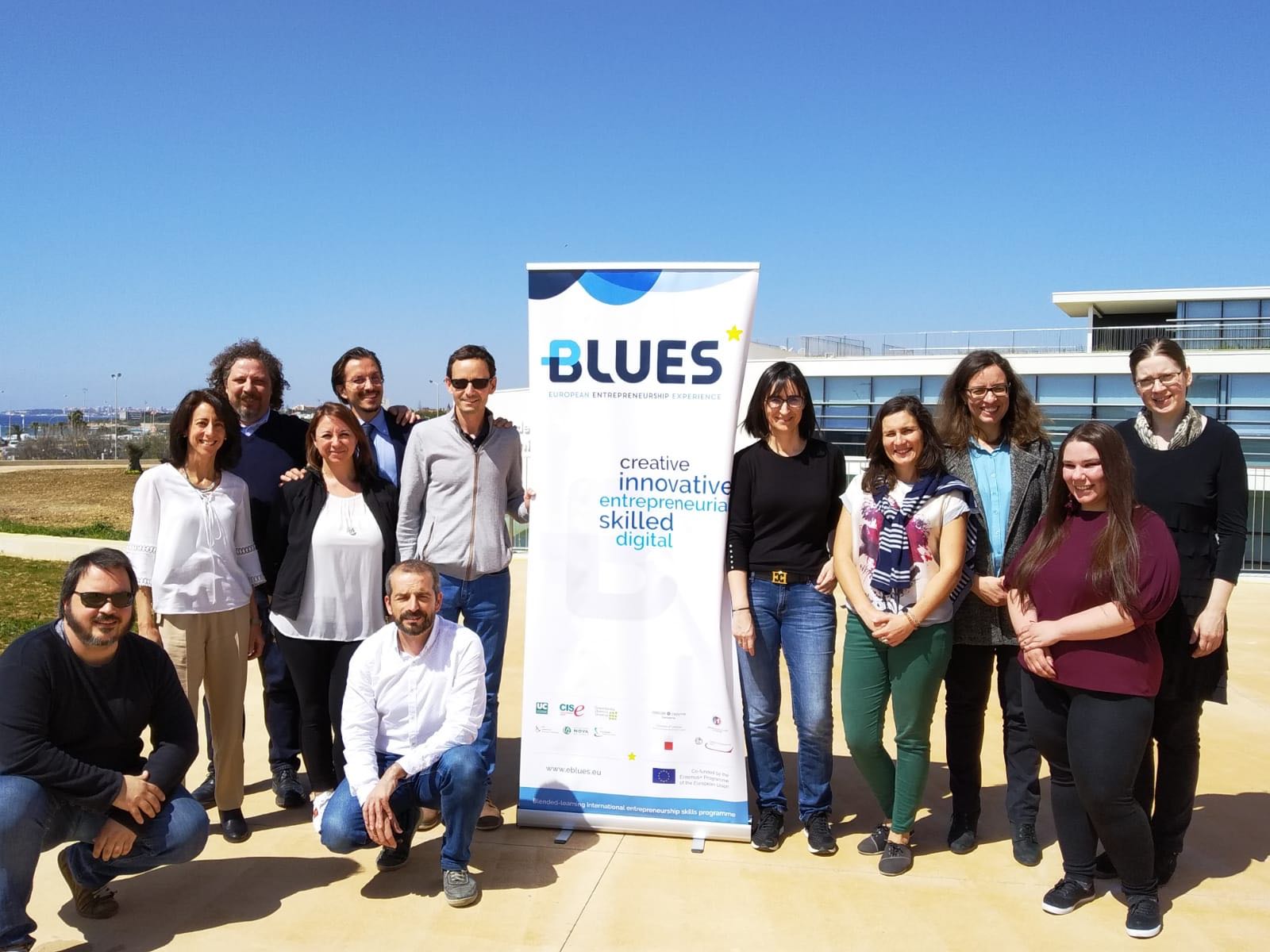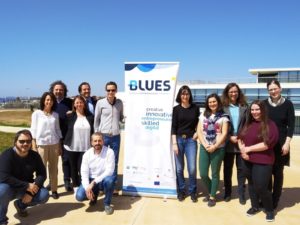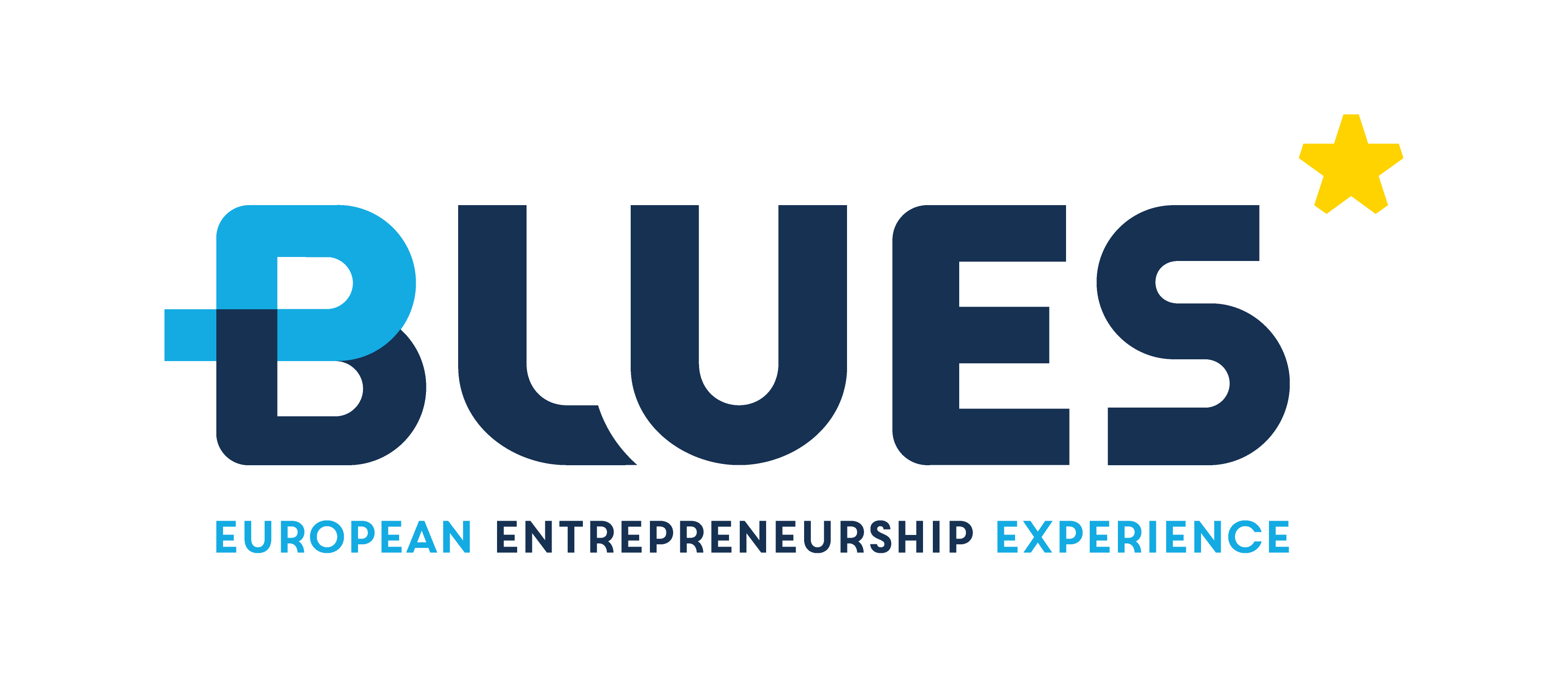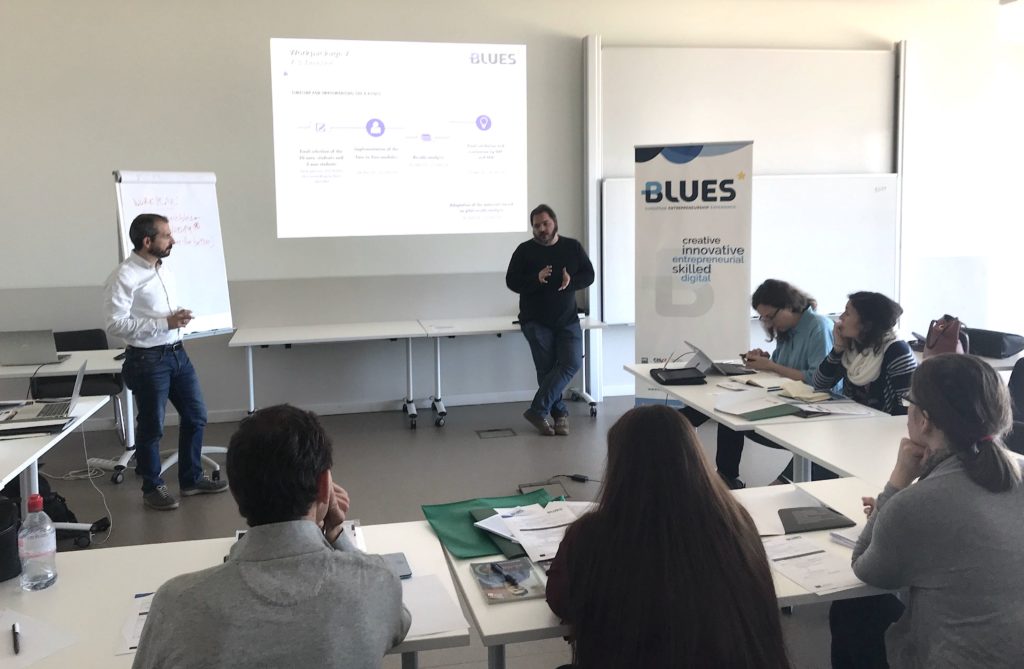
01 Abr BLUES PARTNERS MEET IN LISBON AHEAD OF THE SECOND PHASE OF THE PROGRAMME, THE PILOT FACE-TO-FACE COURSE
Representatives of the ten organisations involved in the development of this innovative teaching methodology have assessed the project status and are getting ready to start the practical sessions with teachers, mentors and local entrepreneurs in Portugal, Spain, Slovenia and Italy. BLUES main objective is to promote entrepreneurship amongst European university students.
NOVA University of Lisbon has been the meeting point for representatives of all the partners who have designed, given shape and are delivering BLUES Programme, a European initiative under Erasmus + to settle entrepreneurship teachings in European universities. BLUES has now entered the first project delivery phase, the online course What, Why & How. Your Road to Entrepreneurship, which will be followed by four pilot face-to-face courses.
The main aim of this meeting was to share the tools designed for the courses, and review all the steps taken for their successful implementation. All BLUES partners -five universities and several organisations focussed on promoting and supporting entrepreneurship- seek to reach the highest possible impact of this pilot programme, as it will be the test bench for the methodology and resources they have designed. The more students accessing this training, the richer will be the feedback received in order to tweak it until its highest level of effectiveness and student satisfaction.
BLUES is co-funded by the Erasmus + Programme of the European Union, and as such, it is subject to quality controls. Meetings like this are also a useful tool for all partners involved to evaluate the project progress, and reflect on the evaluation results written periodically by the local National Agency, European body responsible for the monitoring, evaluation and promotion of Erasmus +, which is also in charge of sharing success stories and good practices.
Maintaining the programme’s quality standards is a priority for all partners involved, as the ultimate goal of this project is to offer a well tested, innovative methodology to any institution, world-wide, interested in promoting entrepreneurial and business skills amongst young people.
Staff training and Entrepreneurship Teaching Summit
While BLUES consortium offered a staff training event prior to the delivery of the pilot online and face-to-face courses, they have decided to organised a second one after the full delivery. This staff training event will take place in Santander (Spain) on 9-11th September, and it will guarantee the proper implementation of the methodology at all partner organisations, specially universities.
The programme will also share its conclusions and knowledge more broadly with an international event scheduled for November. This will be an entrepreneurship summit that will be open to any institution from anywhere in the world interested in embedding the teaching of entrepreneurial and business skills into their current programmes.

About BLUES
The BLUES (Blended-Learning International Entrepreneurship Skills) programme started last October 2017. The project was born within the Erasmus+ European programme framework and is being carried out with the collaboration of partners from five countries: Spain, Italy, Portugal, Slovenia, and Finland. This ambitious initiative has been financed by the European Commission with a budget of over €270,000 and will also involve local business representatives.
The project relies on the coordinated efforts from the University of Cantabria, Santander International Entrepreneurship Centre (CISE) and the business association CEOE-CEPYME Cantabria in Spain; Nova University of Lisbon and Madan Technological Park in Portugal; the University of Ljubljana and the Chamber of Commerce and Industry of Slovenia; the University of Perugia and Terni Chamber of Commerce in Italy, and LUT University (Finland).


